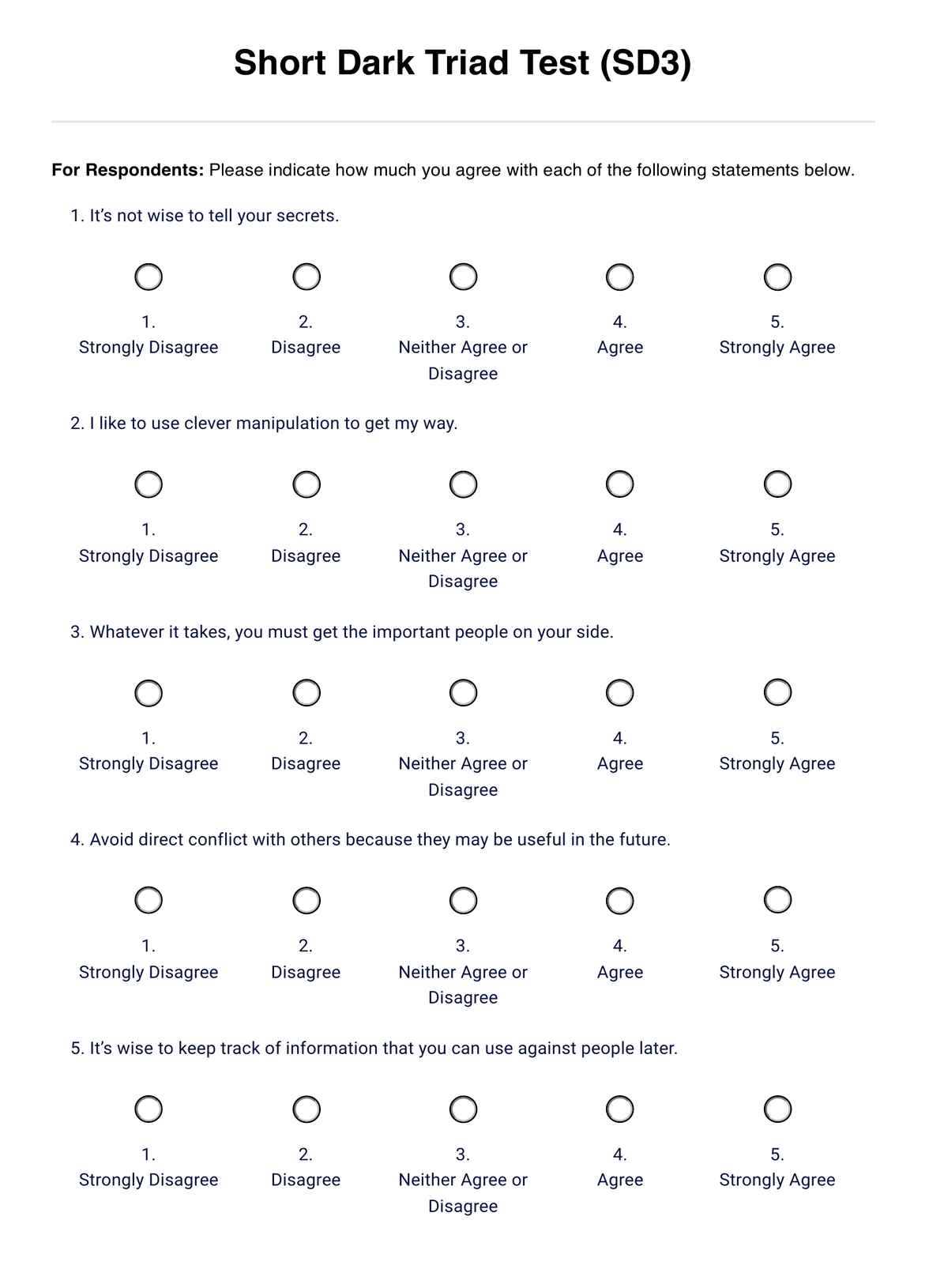The Dark Triad, consisting of narcissism, Machiavellianism, and psychopathy, is not considered a mental illness or disorder in itself. However, individuals who score highly on these traits may exhibit behaviors or characteristics that overlap with certain personality disorders, such as narcissistic personality disorder or antisocial personality disorder.

The Dark Triad Test
Learn more about the Dark Triad Test, and how to assess the three psychological traits that affect personality.
The Dark Triad Test Template
Commonly asked questions
There is no universally agreed-upon threshold for what constitutes a "high" score on the Dark Triad Test, as the interpretation depends on the specific measure used and the assessment context. However, scores that are significantly above the population averages (typically 1 standard deviation or more) on measures of narcissism, Machiavellianism, and psychopathy may indicate the presence of these traits to a greater degree
There is limited scientific evidence directly linking specific facial features to the Dark Triad personality traits of narcissism, Machiavellianism, and psychopathy. Some studies have suggested that individuals high in these traits may exhibit certain facial features, such as a more masculine facial structure, lower facial fluctuating asymmetry, and a more dominant facial appearance. However, these findings are preliminary and do not provide a reliable basis for identifying Dark Triad individuals based solely on their facial features.
EHR and practice management software
Get started for free
*No credit card required
Free
$0/usd
Unlimited clients
Telehealth
1GB of storage
Client portal text
Automated billing and online payments











